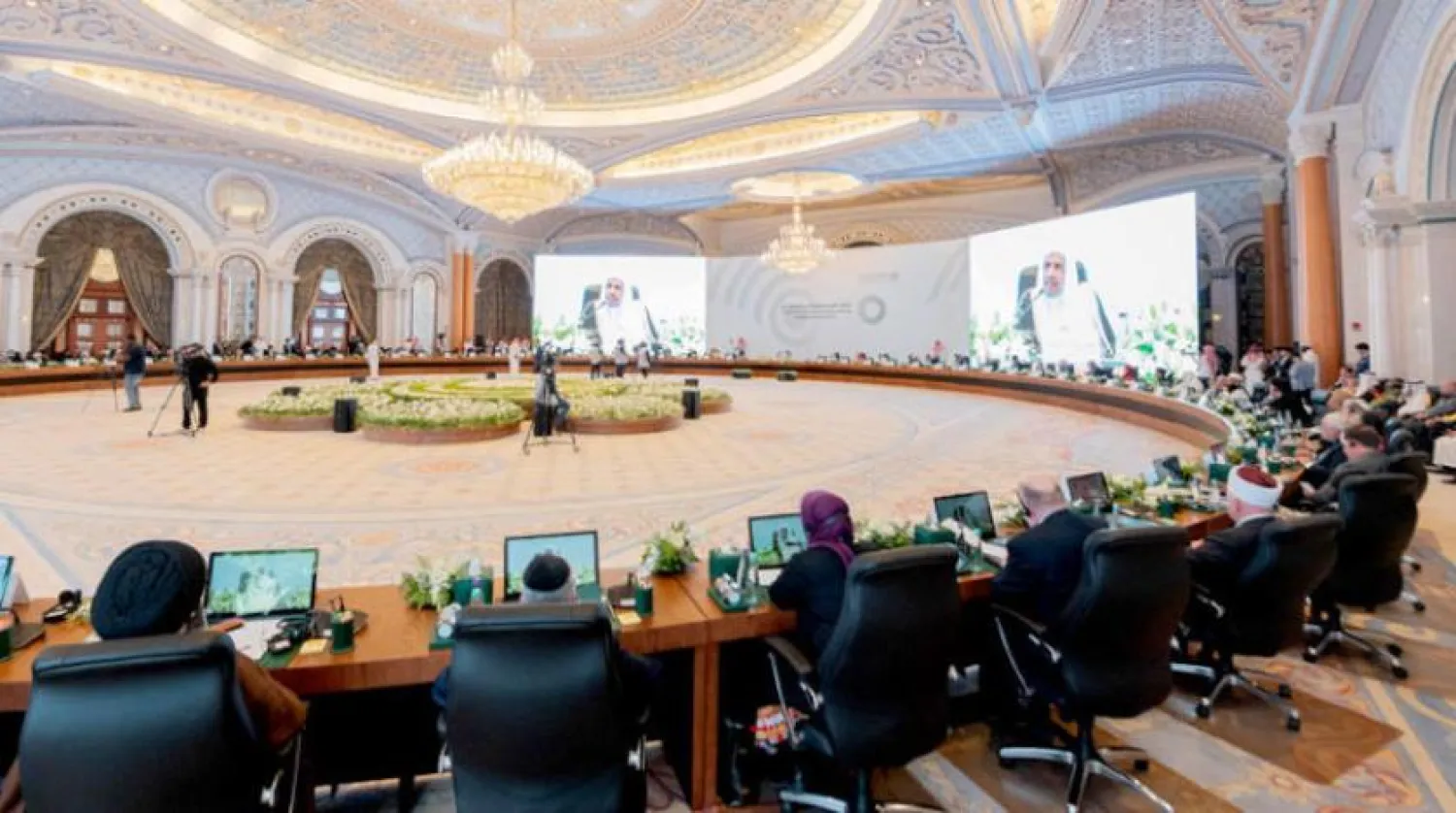The Muslim World League (MWL) launched on Wednesday the forum of "Common Values among Religious Followers", in the presence of around 100 religious leaders and scholars in Riyadh.
Attendees are participating in the forum to draw emphasis on human dignity, just equality between human beings, and the necessity of tolerance and understanding when it comes to religious and cultural differences.
Participants in the interfaith forum also called for the need to promote peace and solidarity around the world.
In his speech at the conference, Muhammad bin Abdul Karim Al-Issa, Secretary-General of the Muslim World League, said that all followers of religions have the right to exist with dignity and respect.
“We reject any wrong or deliberate interpretation that undermines coexistence between followers of religions,” said Al-Issa.
“This forum aims to enhance understanding and harmony among followers of religions… Our spiritual moderation brings together and does not differentiate,” calling for the need to avoid volatility in positions for the sake of interim goals.
Meanwhile, Patriarch Bartholomew I, the Ecumenical Patriarch of Constantinople and New Rome, said: “Religion is not only related to human fears, but to the identity of peoples and civilizations.”
He added that religion preserves human values and we must cooperate and apply what we know about peace.
The forum has an opening session and three discussion panels, the first of which is under the topic “Human Dignity: equality between human beings and the depth of human commonalities.”
It focuses on the necessity of understanding religious and cultural specificities and not offending their followers, but rather dialogue shall take place to clarify what needs to be clarified as it is among the morals of Islam.
The second is entitled “Bridging Humanity for the Good of Humanity: Dismantling the concept of the inevitable conflict, clash of civilizations, as well as promoting the values of friendship and cooperation among nations and people for the benefit of all,” under the slogan: “One human family gets to know each other, understands and cooperates while clarifying the truth for all.”
The third session deals with the topic: Moderation and understanding others ... the innate human values and their role in forming moderate personality, understanding diversity among humans, and not turning it into fear, hatred or conflict, but rather into dialogue, understanding and cooperation for the benefit of all.
Sessions will be followed by an open dialogue about the presented initiatives. A final statement will be read out during the final session, including a declaration of common human values in light of the outcomes of the forum's conclusions.









